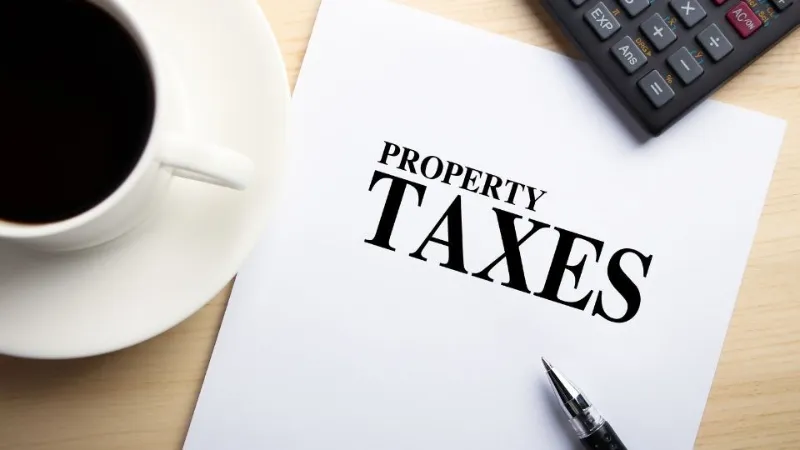
There are many benefits to living in San Diego, California. With spectacular sunsets, friendly neighbors, world-class food, and countless activities, California is almost a utopia for residents and tourists alike.
However, not everything in California is so amazing. Property taxes in California may be perplexing for most people, including San Diego investors.
Whether you’re a first-time home buyer in San Diego or a seasoned real estate investor, don’t worry; we here at PURE Property Management will answer all your questions about California property tax in this article.
San Diego Property Tax: A Guide
Property taxes, regardless of which state you live or invest in, may be confusing and expensive. If you’ve ever wondered why the cost of living in California is so expensive, well, the reason is partly owed to hefty property taxes.
While San Diego property taxes can be a frustrating and costly part of life in California, it does result in a number of positive consequences.
For example, property tax funds are used to finance important local and county services, public health services, park conservation and upkeep, resident waste management, road repairs, first responder and law enforcement services.
Property taxes are an unavoidable part of the privilege of owning a home in a San Diego neighborhood. Nobody loves paying taxes, but they don’t have to be excruciatingly complicated.
Knowing the specific regulations and state standards will help you feel more at ease about San Diego property taxes.

San Diego, California Property Tax Rate
Your property tax rate in California is determined based on the assessed value of your property.
This is initially evaluated based on the house’s purchase price, but the assessment may change as a result of annual inflation. In any case, your taxes cannot exceed the 2% limit.
The current property tax rate in San Diego is 0.73 percent. As an example, in San Diego, the median property value is $825,000. In this case, the property tax due would be $6022.5 at the current tax rate.
How High are San Diego Property Taxes?
In general, people consider real estate and property taxes in San Diego to be exorbitant.
The truth, however, is that San Diego County actually has a lower tax rate than other counties in California. In fact, the average property tax rate in San Diego County is lower than the national average (1.1%).
By comparison, counties like San Joaquin, Modoc, Lake, and Solano have higher property tax rates ranging from 0.82-0.88 percent. Kern County in California has the highest county property tax rate in the state, at a staggering 1%.
So, when looking at the whole picture of property taxes, San Diego’s rates are actually quite low.
What is the Property Tax System, and How Does it Work?
Three separate government departments are involved in this system.
First, the county assessor determines the worth of your property. After that, an auditor calculates the tax rates based on the assessed value. This gives you the amount of property taxes you’ll owe.
Once the property’s value and tax assessments are determined, a percentage of your tax payment is distributed to different state, local, and county services. For example, San Diego County gives 45.6 percent of all property taxes received to public schools for upkeep, programs, and renovations.
Finally, the Treasurer-Tax Collector issues tax invoices and collects property taxes.
How Property Taxes in San Diego are Calculated

Calculating property taxes is reasonably easy in most states. There are many circumstances, amendments, and voter-mandated variables, however, might lead to confusion for California homeowners.
In most cases, your property tax is 1% of the net worth of your home. Special assessments or extra bonds approved by state voters, however, can affect your property tax.
Although property taxes vary, the Assessor is in charge of determining the value of all houses in San Diego County.
When Are San Diego Property Taxes Due?
Every year in October, the Treasurer-Tax Collector’s office sends out tax invoices, which are to be made in two payments.
The first payment is due on November 1st. It’s considered late after December 10th. The second payment is due on February 1st, being considered overdue after April 10th. To avoid fines and late fees, pay by or before the property tax due date.
When the first payment is due, you also have the option of paying both installments at the same time. Of course, even if you don’t get your bill in the mail, you’re still responsible for your California property tax payments.
If you don’t receive a tax invoice, please contact the Treasurer-Tax Collector’s office.
How Can I Pay San Diego Property Taxes?
On the San Diego County Treasurer-Tax Collector website, you can obtain a copy of your property tax bill and make a payment.
You can securely make your property tax payments online with an e-check. The Treasurer-Tax Collector also accepts all major credit cards, but remember that paying by credit card incurs a 2.19 percent convenience fee, whereas paying online with an e-check is free.
You can also send payments by traditional mail. If you want to pay your San Diego property tax by snail mail, make sure to postmark it before the due date to avoid penalties. The penalty for late payments is 10% after December 10th and 10% + $10 after April 10th. 
What About San Diego Property Investors?
In San Diego, if you own or operate a residential rental property, it’s considered a business activity. This means you’ll have to pay a Rental Unit Business Tax every year.
You may be exempt from this tax if:
-
The property is your primary residence
-
You’re renting it to an immediate family member
-
Your property is considered section 8/low-income housing
-
You operate as a corporation/LLC
San Diego Property Tax in a Nutshell
There’s a lot that property owners and investors in San Diego need to know about property taxes.
At PURE Property Management, we offer financial reporting as part of our San Diego property management services.
Every month, our accounting team will send you reports on rent collection, vendor bills, owner statements, and more. We also send tax statements and 1099s at the end of the year to make tax payment as easy as possible.
Get in touch today to learn more!


